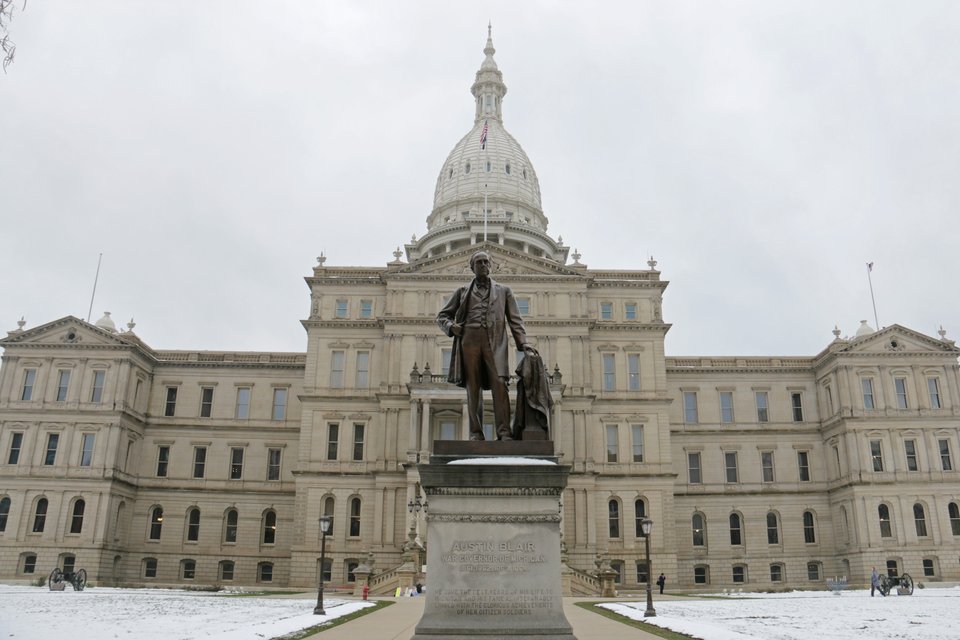Gov. Whitmer signed package of bills April 1 legalizing paid surrogate contracts in state without protections for vulnerable mothers
LANSING — A new state law that legalizes paid surrogacy contracts in Michigan opens a host of potential abuses and fails to consider how women might be exploited by the practice, the Michigan Catholic Conference said after Gov. Gretchen Whitmer signed the bills April 1.
The Michigan Catholic Conference, which serves as the public policy voice of the Catholic bishops of Michigan, said the laws leave women vulnerable to exploitation and human trafficking and minimize the dignity of motherhood and childbirth.
Gov. Whitmer signed House Bills 5207-5215, which reversed a 36-year-old prohibition on paid surrogacy in Michigan.
Michigan join a large majority of states in the country that permit paid surrogacy. The only remaining states to not permit paid surrogacy are Nebraska and Louisiana.
The Legislature initially banned the market through the Michigan Surrogate Parenting Act in 1988, which made all compensatory surrogacy contracts unenforceable and the creation of such contracts punishable by fines and up to a year in prison.
“While every child possesses inherent dignity and worth, regardless of the manner by which the child came into the world, the change in Michigan law will allow for those with resources to obtain a child at the expense of women in financial need,” Michigan Catholic Conference president and CEO Paul A. Long said. “For profit surrogacy contracts that pay females for the use of their reproductive means violate the inherent dignity of women and unethically allow children to be the subject of a contract. The practice of surrogacy undermines the significant prenatal bond formed between a child and the mother who nurtured him or her through birth.”
The new law creates a “new, unregulated industry in Michigan that will result in the advertising, recruiting and targeting of women to become paid egg donors and surrogates,” the Michigan Catholic Conference said.
To procreate through surrogacy, doctors typically create several embryos through IVF by fertilizing a woman’s egg with a man’s sperm in a lab and then implant one of the embryos in another woman, called the surrogate mother, who has no biological ties to the preborn child. In the IVF process, doctors routinely create numerous excess embryos, most of whom are discarded, which ends human lives.
The legislation was part of a nine-bill package titled the Michigan Family Protection Act.
Michigan lawmakers introduced the package of bills in response to an Alabama Supreme Court ruling that recognized the personhood of preborn children created through IVF at the moment of fertilization. Because the destruction of human embryos is integral to the IVF process, the ruling immediately shut down several IVF clinics in Alabama until that state’s governor signed a bipartisan bill to shield clinics from civil and criminal penalties when destroying human embryos.
Amber Roseboom, the president of Right to Life of Michigan, criticized the governor’s package of bills, calling it “a disgraceful election-year attempt to mislead voters with the fantasy that IVF, prenatal care, and abortion are at risk in Michigan.”
The Catholic Church opposes both IVF and surrogacy because they separate the marital act from the process of procreation and result in the destruction of human embryonic life. Earlier this year, Pope Francis called surrogacy “deplorable” and called for a global ban on the exploitative practice of “so-called surrogate motherhood.”
“I deem deplorable the practice of so-called surrogate motherhood, which represents a grave violation of the dignity of the woman and the child, based on the exploitation of situations of the mother’s material needs,” Francis said in a speech to ambassadors to the Vatican. “A child is always a gift and never the basis of a commercial contract.”
The Vatican intends to unveil a declaration on human dignity next week, which is expected to touch on several issues, including gender ideology and surrogacy.
The Michigan Catholic Conference spent weeks seeking to inform lawmakers of the dangers of paid surrogacy to no avail, Long said. Lawmakers declined to consider any amendments to the proposed legislation, including changes that would have protected surrogate mothers via residency requirements and protections for women with intellectual or developmental disabilities from being used as surrogates.
"We recognize the good that exists in a desire to have and raise children and create a family of one’s own. However, there is a societal cost to compensated, for-profit surrogacy,” Long said. “With the law requiring surrogates to have previously given birth to a child, young or single moms — likely those with small children of their own — will be targeted for the use of their body and enticed with money needed to provide for their children.
“Infertility is a bitter cross to carry for those who yearn for children,” Long added. “This is why we continue to advocate for policies that promote and improve the state’s adoption and foster care system, so married men and women who earnestly desire to be parents may be better connected with the thousands of children in need of loving homes.”
Catholic News Agency contributed to this report.
Copy Permalink
Faithful citizenship











